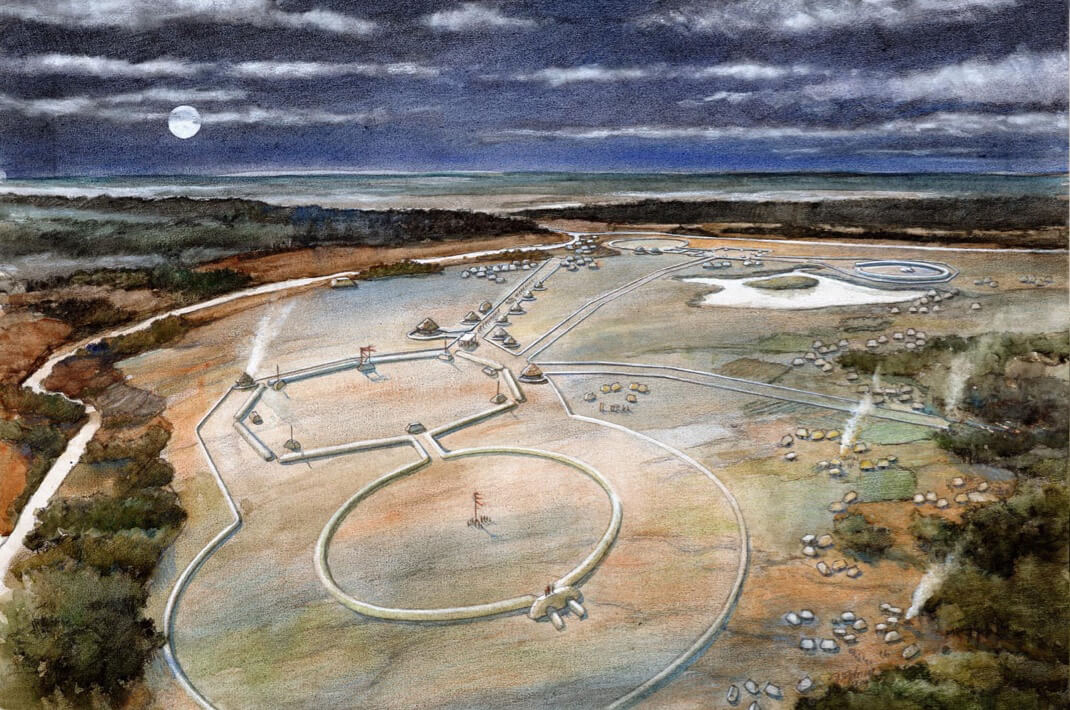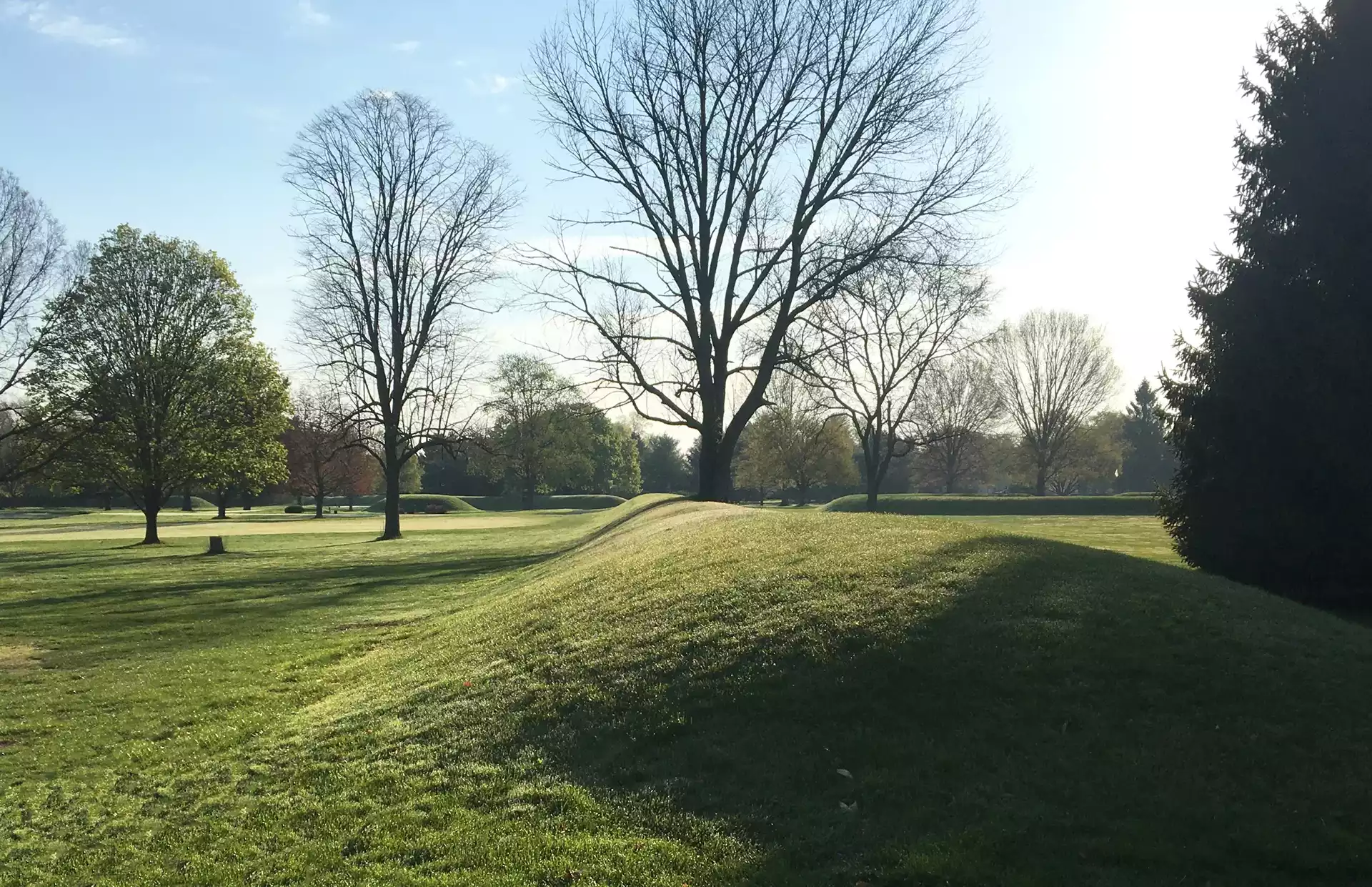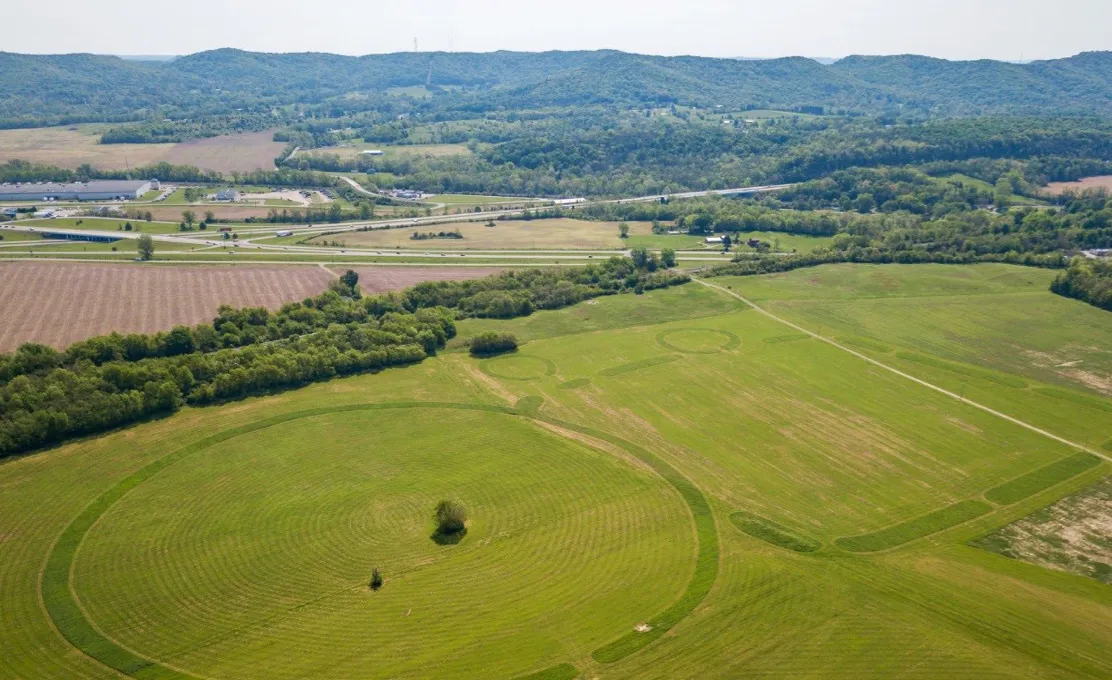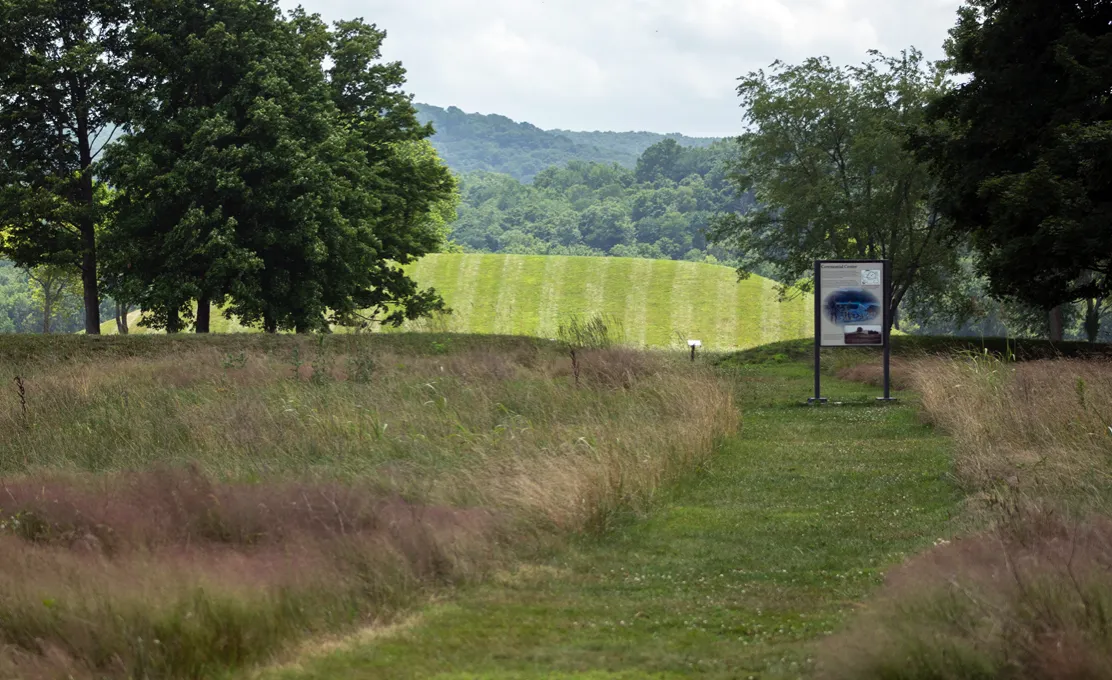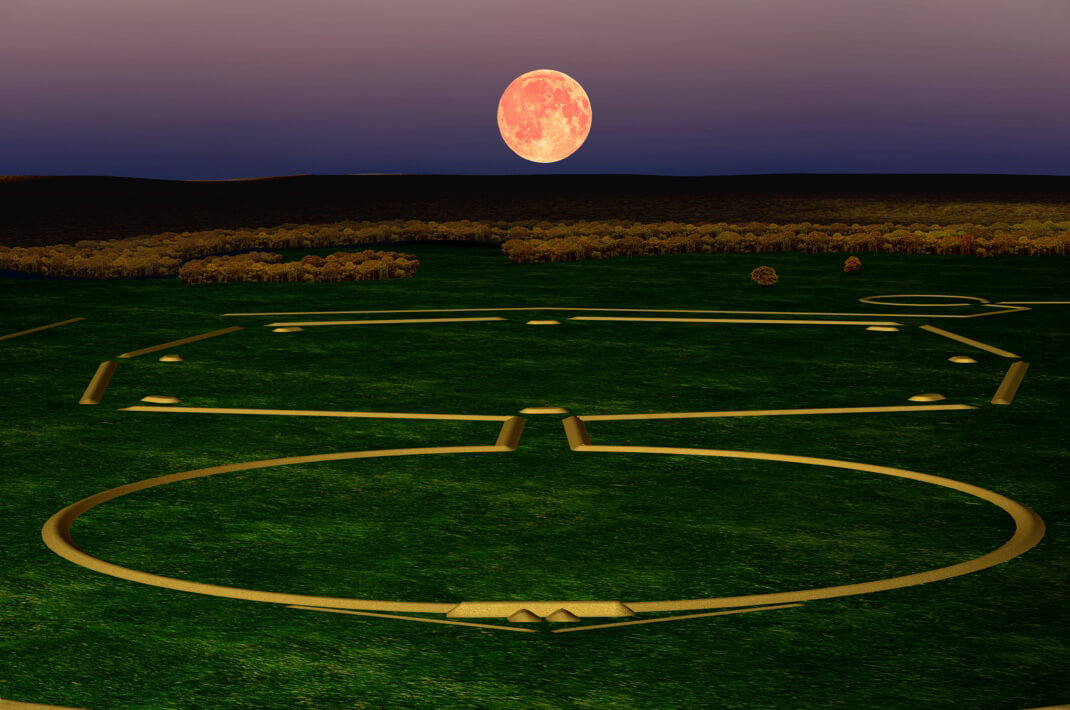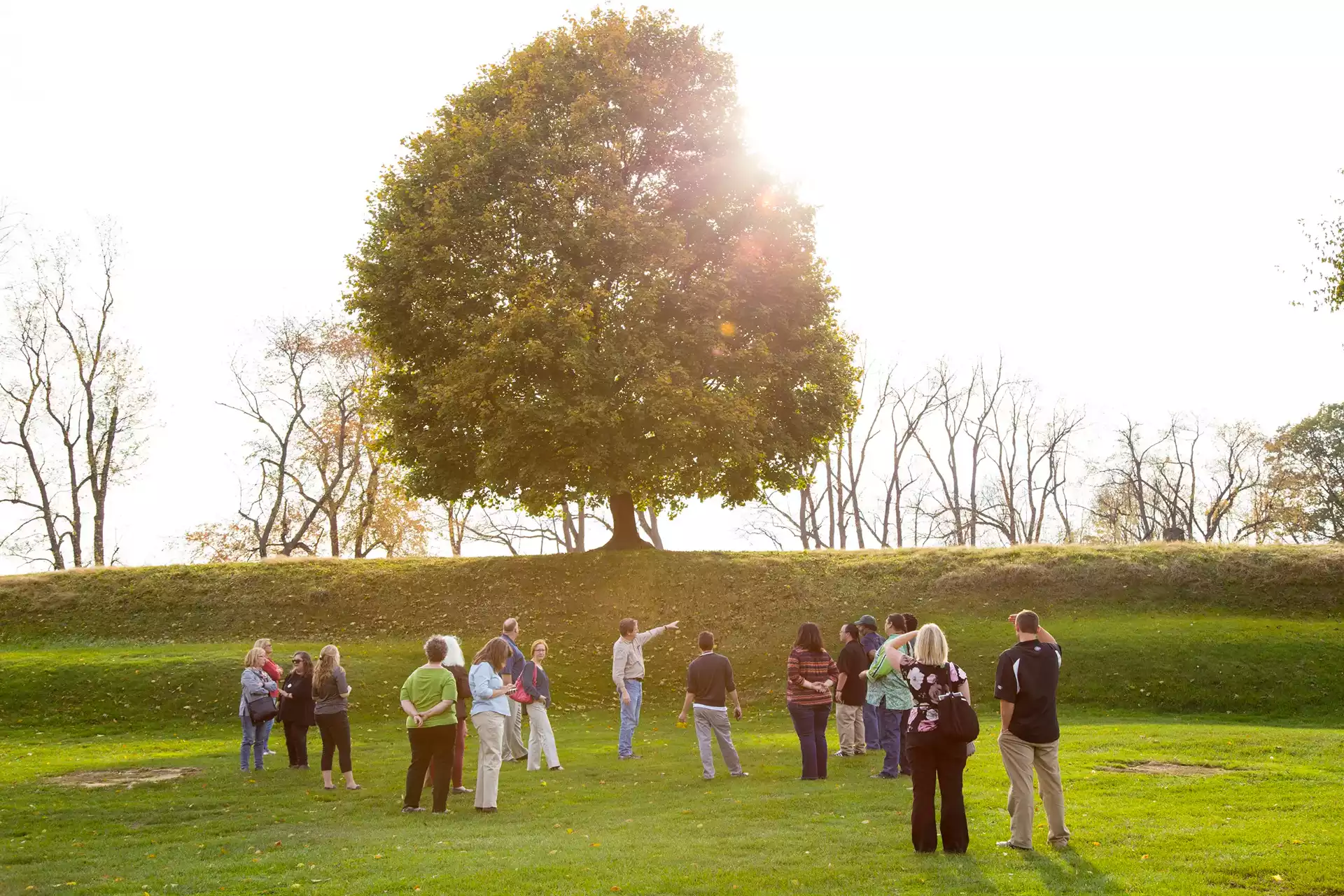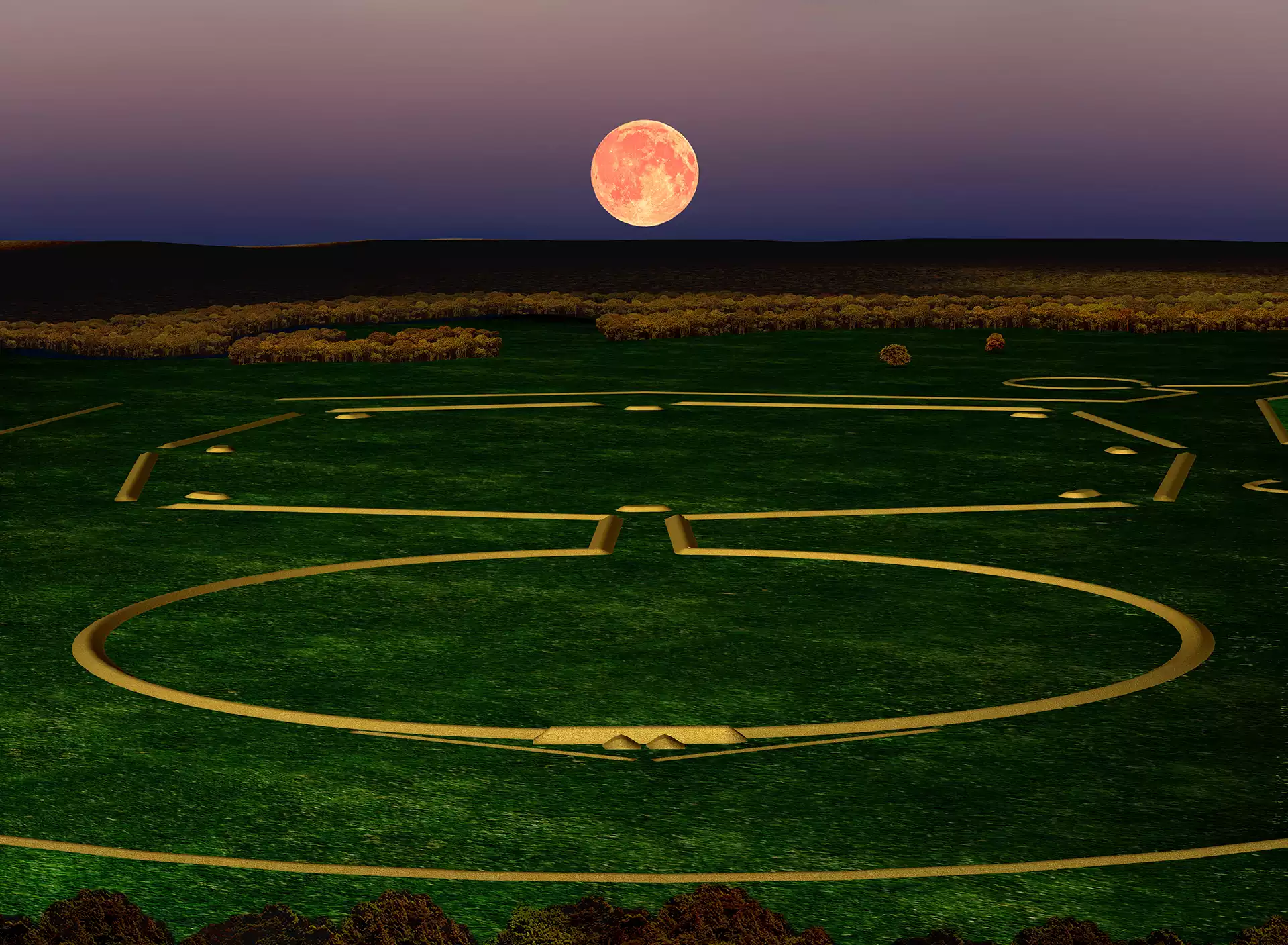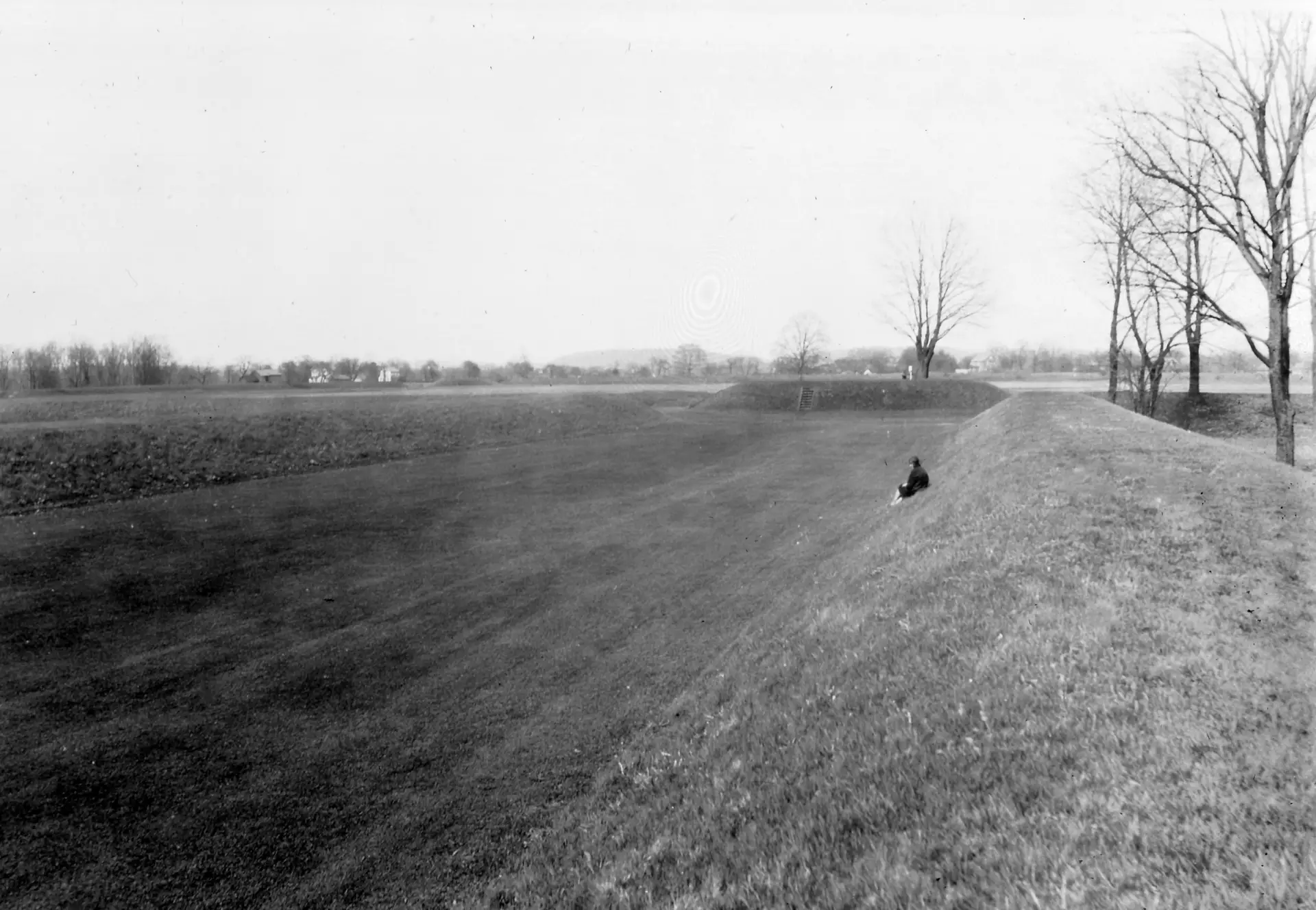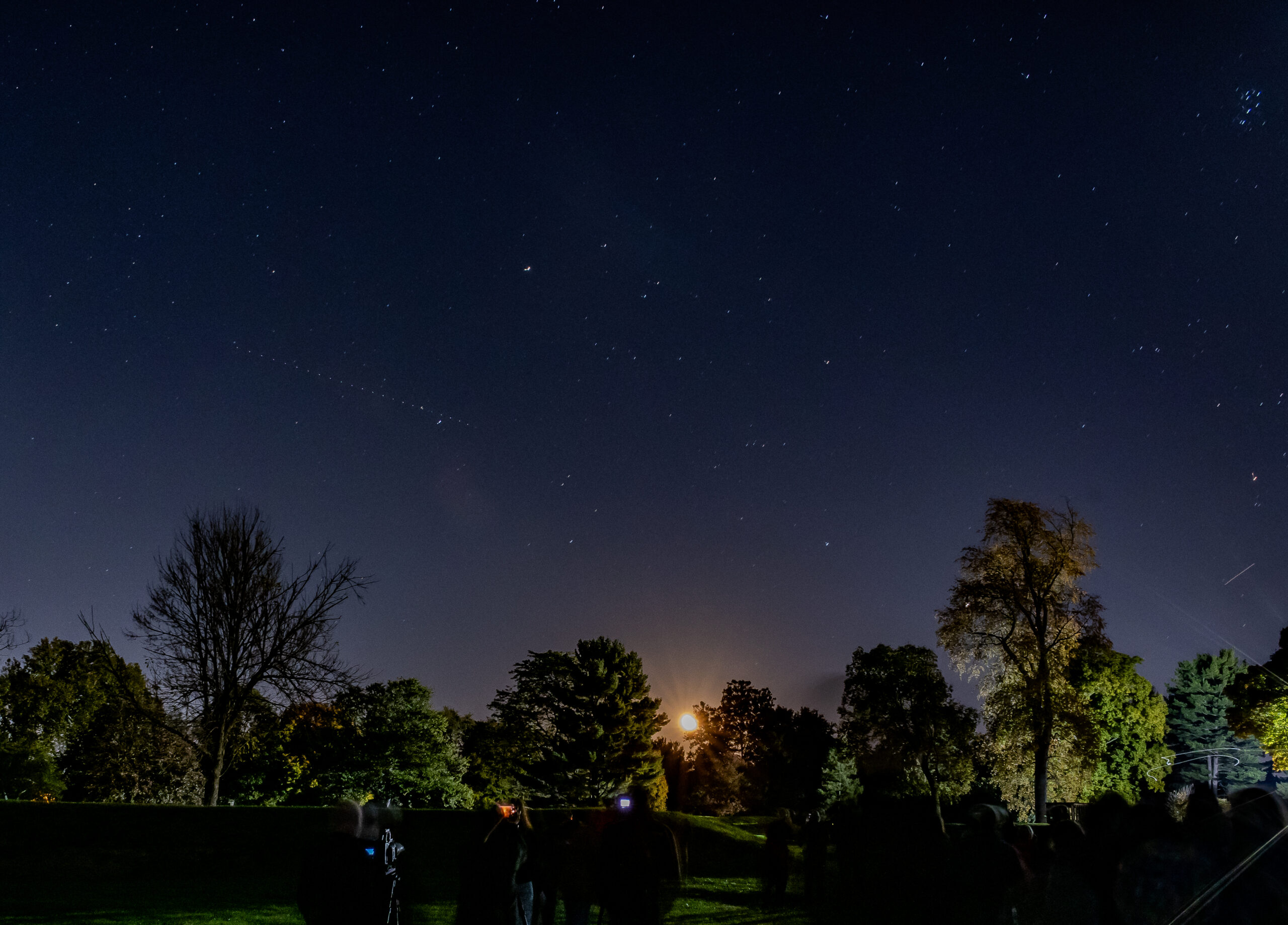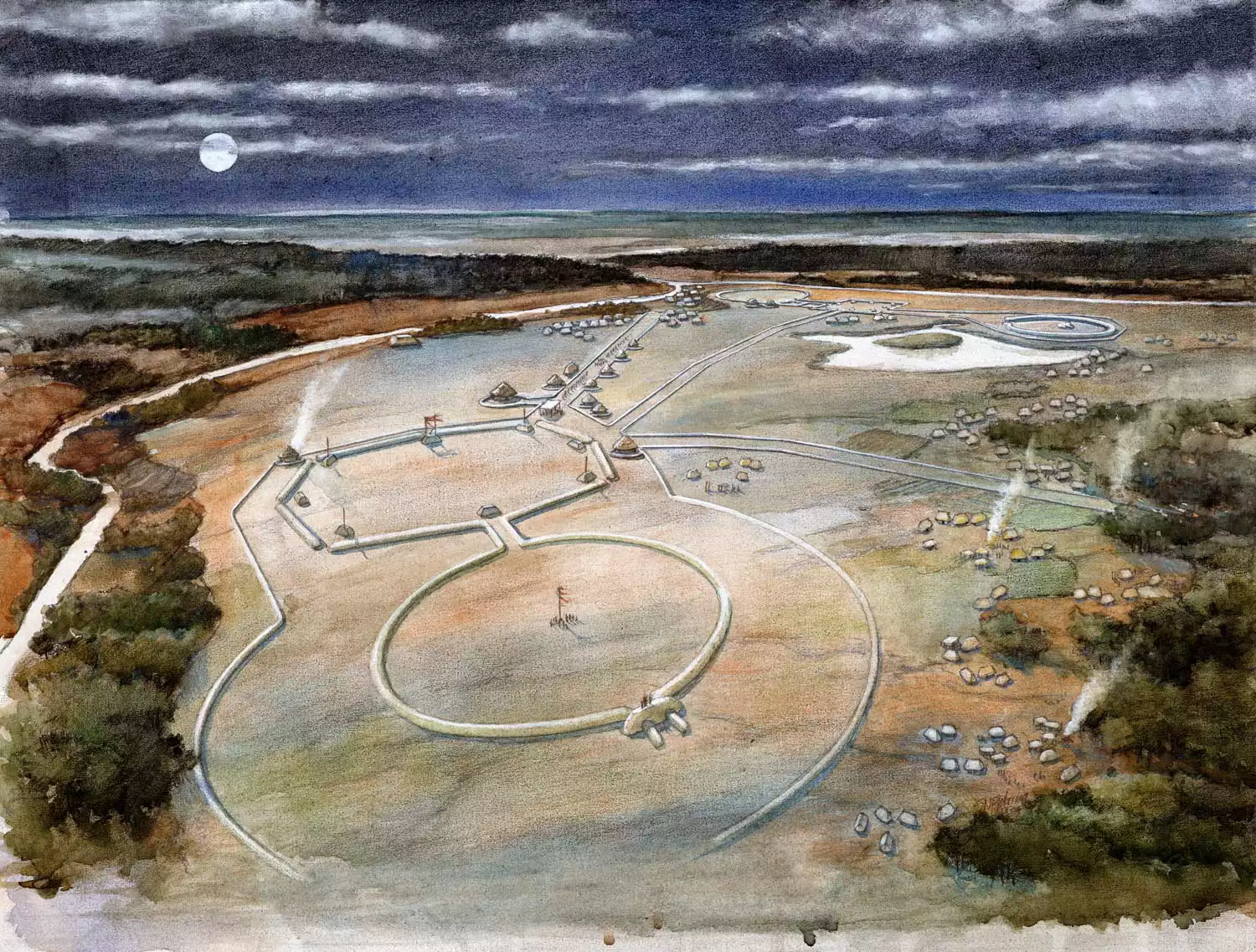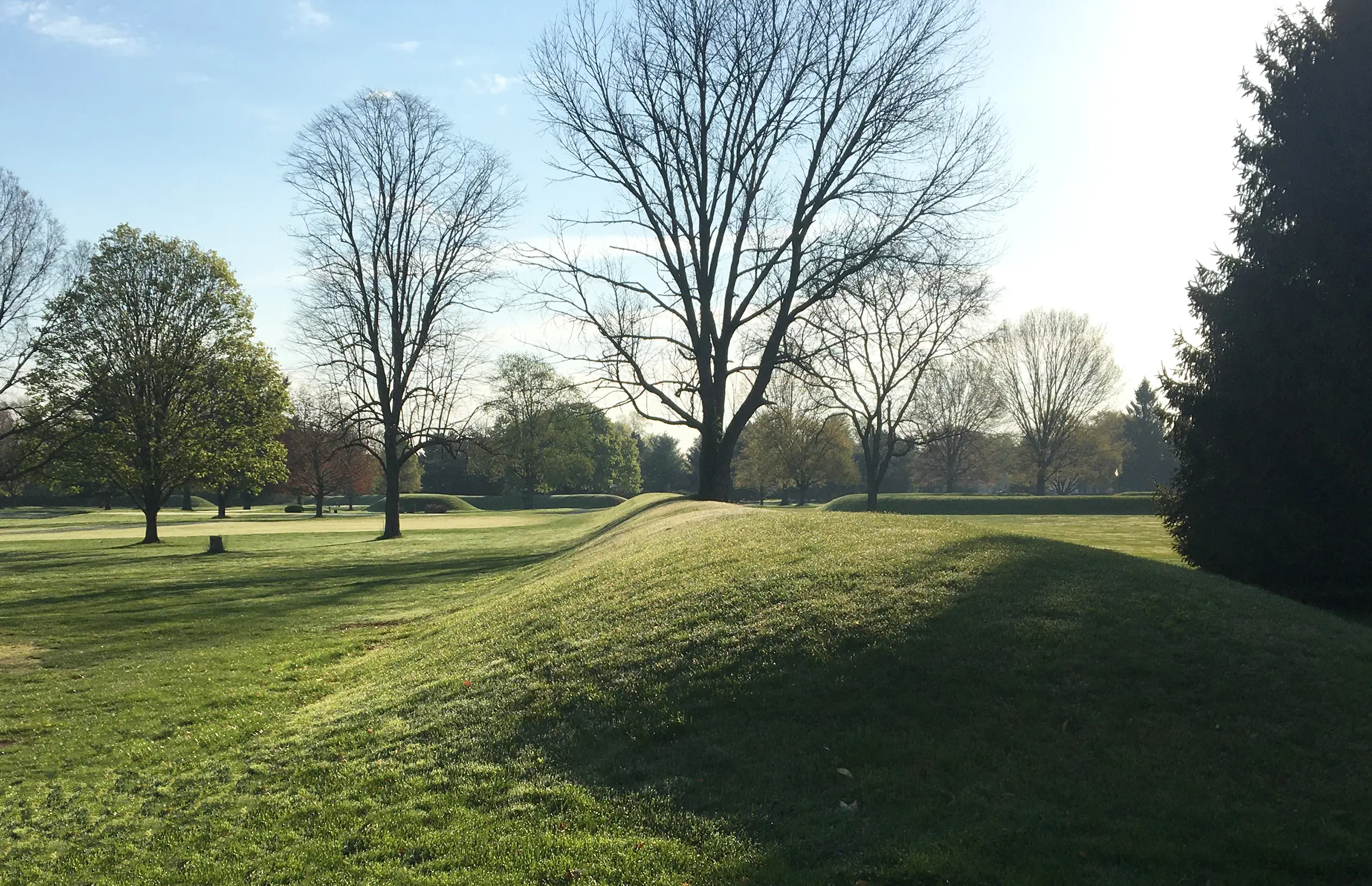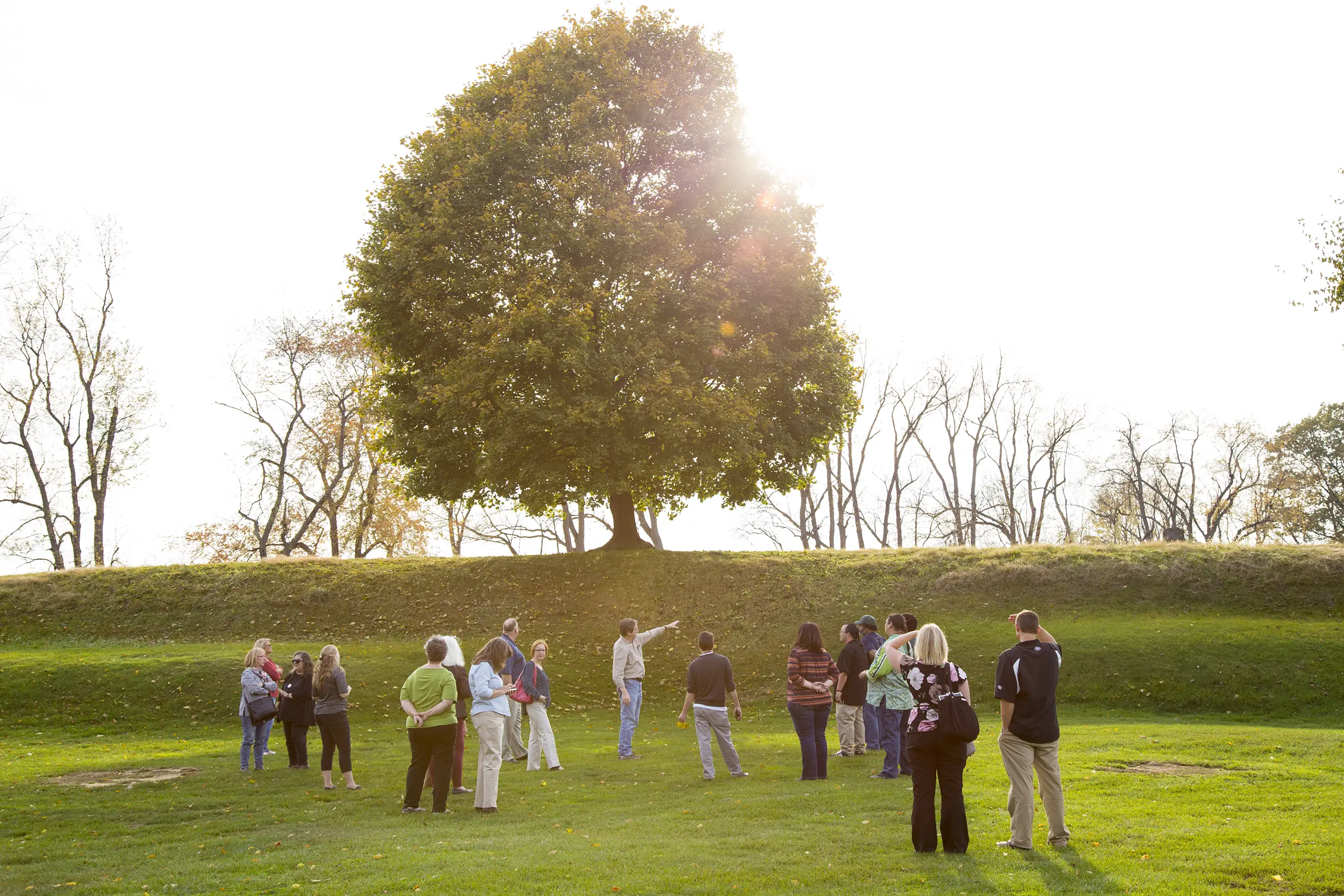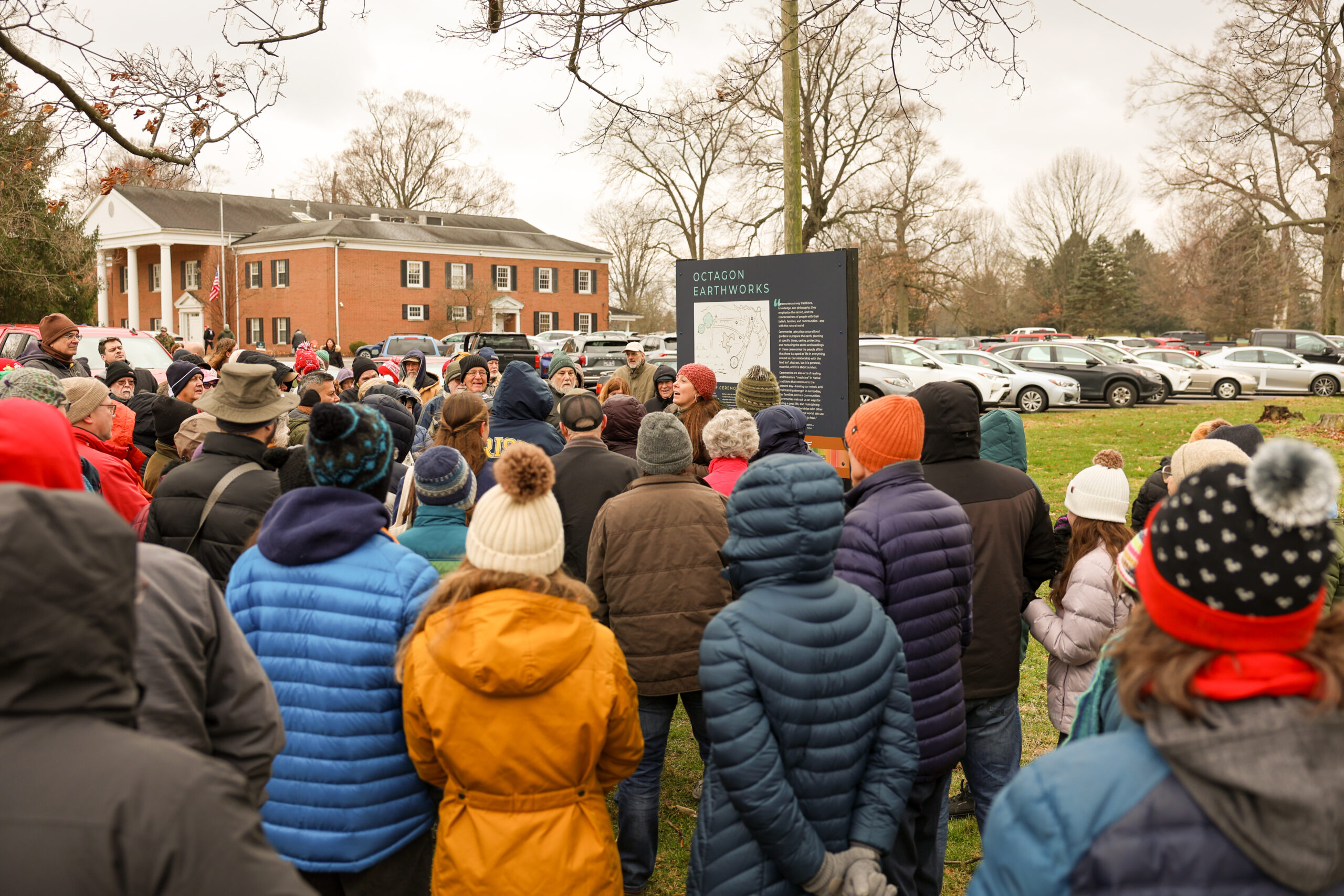Octagon Earthworks
Newark, OH
One of the grandest remnants of the Newark Earthworks, the Octagon Earthworks is an architectural feat of astonishing precision. Its unique and somewhat mysterious shape was built by dispersed people on a scale that required remarkable collaboration and an advanced understanding of the cosmos.
Visitor Info
125 N. 33rd St.
Newark, OH 43055
- Park grounds: The Octagon Earthworks site is open to the public during daylight hours.
- Visitor center: Open from 11:30 a.m.–1:30 p.m. from Wednesday–Sunday.
- Tours: Admission to either the Great Circle or Octagon site is $10 for adults (ages 12+), $7 for seniors (65+), and $5 for students and children ages 5–12; children under 5 are free. Admission to both sites is $15 when booked together, and Ohio History Connection members receive free entry. No registration is required for regularly scheduled tours; visitors should stop at the Visitor Center to purchase tickets before tours begin. Tours take place rain or shine, with no paved walkways into the earthworks, so appropriate attire is recommended. Winter tours (January–February) occur on the second Saturday of each month, with Great Circle tours at 11 a.m. and Octagon tours at 2 p.m. Spring tours (March–May) run Wednesday through Sunday at the same times. Special tours led by Senior World Heritage Archaeologist Brad Lepper are offered March–November on the first Friday at 11 a.m. at the Great Circle and the third Friday at 2 p.m. at the Octagon; these tours are free, with donations encouraged to support education and public programming at the Hopewell Ceremonial Earthworks.
Coordinates:
40.0519828 °N
82.4463745 °W
What you'll see
The Octagon Earthworks is made of two geometric enclosures: A large circle enclosing 20 acres, and an even larger octagon enclosing 50 acres, connected to one another by an avenue. The walls of these shapes reach eye-level, and show how the Hopewell culture had an understanding of soil science, as they only selected soil with properties that would maintain the integrity of the mounds.
Directly across from the avenue, there is a break in the circular wall where two parallel extensions originally projected outward, forming a gateway. This former gateway is covered by a large, earth and stone platform mound called the Observatory Mound.
If you are in need of any special accommodations for a tour, please reach out to newarkearthworks@ohiohistory.org.
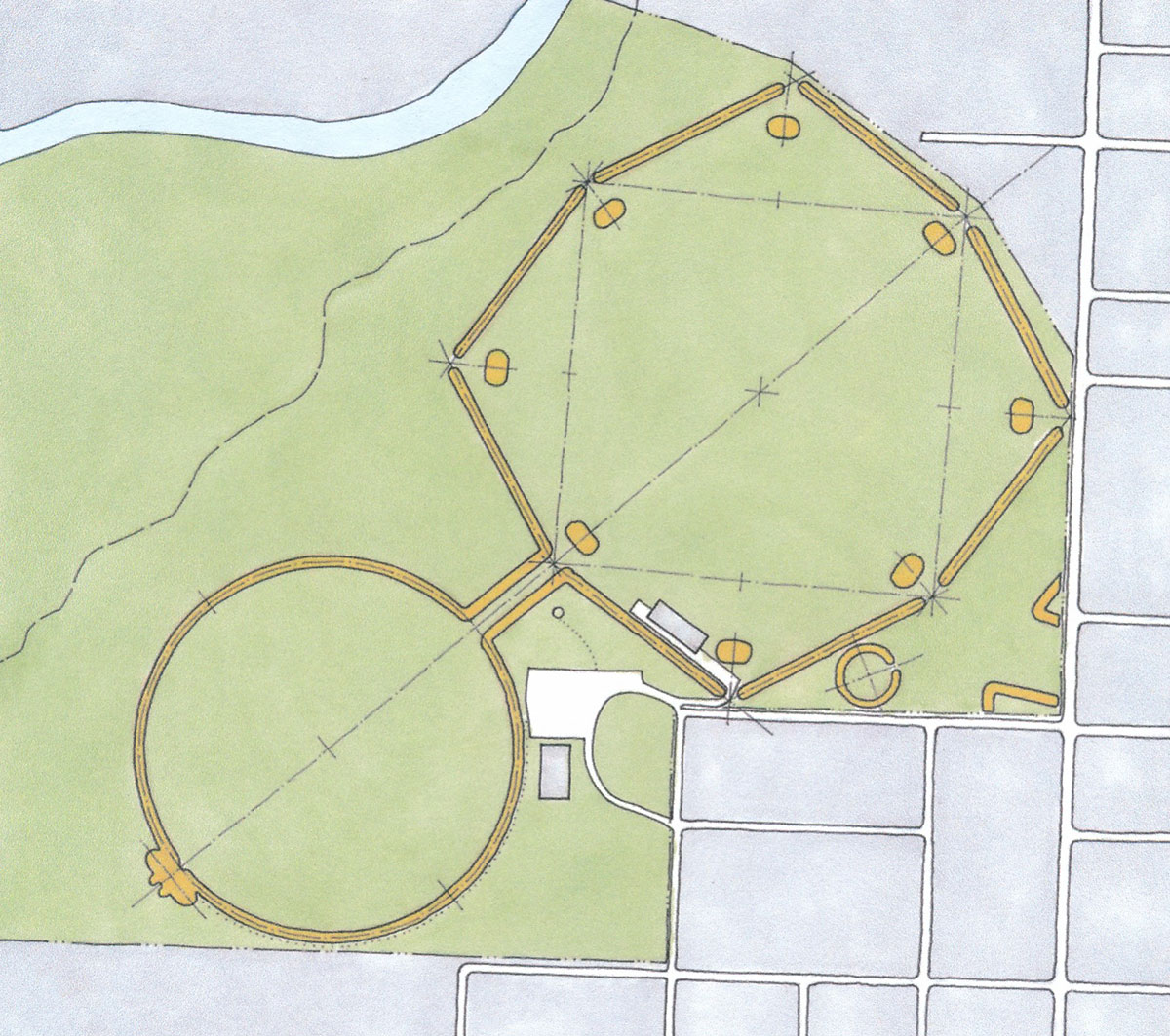
Archaeology & Artifacts
Few archaeological investigations have been performed at the Octagon Earthworks, and as a result, no known artifacts have been uncovered. Because the walls and interior spaces are relatively intact, it’s exciting to think about what future archaeological investigations will reveal about these structures and their builders.
